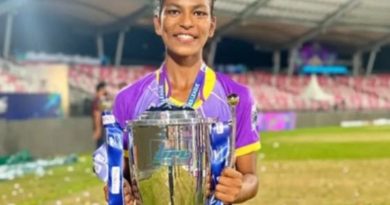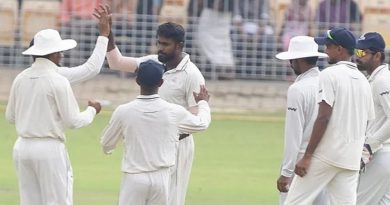Which is the No. 1 Fixing Team in IPL? Unraveling the Truth Behind the IPL Fixing Scandals
The Indian Premier League (IPL), one of the most popular and lucrative cricket leagues in the world, has captivated millions of fans worldwide with its electrifying matches, world-class talent, and thrilling performances. Since its inception in 2008, IPL has become a platform where cricketing legends and rising stars converge to showcase their skills. However, amidst all the glamour and excitement, IPL has also been marred by match-fixing scandals that have plagued its reputation over the years. These controversies have raised a burning question in the minds of many fans: Which is the No. 1 fixing team in IPL?
In this detailed article, we will discuss the fixing scandals in IPL, the teams and players involved in them, and how the league has responded to these incidents. We will also examine the secondary keywords related to IPL fixing, such as match-fixing in IPL, IPL fixing scandals, IPL corruption, and more, to give you a comprehensive understanding of the issue.
Introduction to IPL Fixing Scandals
Over the years, IPL has faced several match-fixing scandals that have rocked the cricketing world. While these controversies tarnish the image of the tournament, they also serve as a reminder of the ongoing battle against corruption in cricket. The first major IPL fixing controversy took place in 2013 when several high-profile players and teams were implicated in illegal activities, including spot-fixing and betting.
Fixing in IPL refers to the manipulation of matches or individual performances by players or teams for illegal betting purposes. It involves players deliberately underperforming, playing deliberately bad shots, or bowling no-balls to influence the outcome of the match in favor of betting syndicates. These fixing operations can severely undermine the integrity of the game and the trust of fans.
The Impact of Fixing on IPL’s Reputation
Match-fixing scandals have a profound impact on any sporting league, especially one as prestigious as the IPL. The reputation of the league is tarnished, and fans’ trust is eroded. When allegations of match-fixing surface, they bring the integrity of the entire tournament into question. For a league like IPL, which thrives on its fan base, any fixing controversy is a serious concern.
Furthermore, match-fixing also affects the players involved. Some players, who might be the victims of coercion or financial stress, get caught up in the scandal and lose their careers. For instance, the 2013 IPL spot-fixing scandal saw players like Sreesanth, Ankeet Chavan, and Ajit Chandila banned for life due to their involvement.
Despite these setbacks, the IPL’s governing body, the Board of Control for Cricket in India (BCCI), has taken strong actions over the years to curb the influence of fixing in the tournament. However, the question remains: Which team was the No. 1 fixing team in IPL?
Teams Involved in IPL Fixing Scandals
While fixing allegations have been leveled against several teams, some have been at the center of the controversy more than others. Let’s take a closer look at the most high-profile teams involved in the fixing scandals:
The Case of Rajasthan Royals
In 2013, the Rajasthan Royals (RR) team became embroiled in the infamous spot-fixing scandal. Three of their key players—Sreesanth, Ankeet Chavan, and Ajit Chandila—were arrested for their involvement in fixing matches during the 2013 IPL season. These players were allegedly part of a larger network of spot-fixers who were working in collaboration with bookies to manipulate specific events within the game.
Sreesanth, one of the more prominent players involved, was banned for life by the BCCI, while the other two players also received lengthy bans. Despite the efforts of the team management and the BCCI to clear the name of Rajasthan Royals, the incident forever tainted their image.
The Chennai Super Kings Controversy
Another team that has faced significant scrutiny is the Chennai Super Kings (CSK), one of the most successful franchises in IPL history. In 2013, Meiyappan, the team’s owner and a key member of the CSK franchise, was arrested for his alleged involvement in the spot-fixing and betting scandal. His arrest led to a further investigation into the team’s activities, resulting in CSK being banned for two years by the Supreme Court of India.
Though the ban on CSK was lifted in 2018, the controversy surrounding the team lingered, and their reputation took a hit due to the involvement of their owner in illegal activities.
Other Teams Affected by IPL Fixing
While Rajasthan Royals and Chennai Super Kings are the two major teams linked to fixing scandals, other teams have also faced some allegations over the years. However, the extent of their involvement has been less severe than the two teams mentioned above.
- Delhi Daredevils (now Delhi Capitals) and Kolkata Knight Riders have occasionally found themselves linked with rumors, but no substantial fixing charges have been proven against these teams.
- In some cases, players from different teams have been accused of fixing matches or individual performances. However, the BCCI‘s vigilance and the introduction of anti-corruption measures have helped to reduce such incidents.
Notable Players Linked with Fixing
Several players have been accused of involvement in match-fixing and spot-fixing over the years. Some of the notable names include:
- Sreesanth: One of the biggest names in the 2013 IPL fixing scandal, Sreesanth was found guilty of spot-fixing and banned for life by the BCCI.
- Ajit Chandila and Ankeet Chavan: Both players were also involved in the 2013 IPL fixing scandal and received significant bans from the BCCI.
- Meiyappan: The former Chennai Super Kings owner was arrested in 2013 for his involvement in fixing and betting.
How IPL Authorities Have Handled Fixing
The BCCI and the IPL governing body have taken several steps to combat corruption and fixing in the IPL. These steps include:
- Strict anti-corruption policies: The BCCI has implemented strict measures to prevent corruption, including the Anti-Corruption Unit (ACU), which monitors player activities and investigates potential misconduct.
- Life bans for guilty players: Players found guilty of fixing are banned for life, as seen with Sreesanth. This serves as a strong deterrent for others in the league.
- Suspension of team owners: The involvement of team owners, like in the case of CSK’s Meiyappan, has led to suspensions and bans, further highlighting the seriousness with which IPL authorities treat fixing allegations.
The Role of Bookies and Spot-Fixers
A key aspect of IPL fixing involves the involvement of bookies and spot-fixers. Bookies often collaborate with players to manipulate certain aspects of a game, such as no-balls or wide deliveries, for betting purposes. These spot-fixers often target vulnerable players who are under financial stress or pressure, exploiting their weaknesses.
The rise of illegal betting syndicates in India has further fueled the problem, with online betting gaining popularity. The efforts of law enforcement agencies and the BCCI’s anti-corruption unit are critical in addressing this issue.
The Fight Against Corruption in IPL
The fight against corruption in IPL has been ongoing since the first match-fixing scandal in 2013. The BCCI has been proactive in implementing measures to curb this issue. Some of the measures taken include:
- Awareness programs: Players, team staff, and officials are regularly briefed on the importance of maintaining integrity and how to deal with potential fixers or bookies.
- Monitoring technology: Advances in technology and data analytics have made it easier for the BCCI to monitor suspicious activities, detect irregular betting patterns, and take timely action.
- Collaboration with law enforcement: The BCCI collaborates with law enforcement agencies to track and dismantle illegal betting syndicates.
The Consequences of IPL Fixing Scandals
The consequences of match-fixing and spot-fixing scandals are severe, both for the individuals involved and for the reputation of the league. These include:
- Bans and suspensions: Players found guilty of fixing are banned for life or given lengthy suspensions.
- Loss of fan trust: The fixing scandals erode the trust of fans, which can negatively impact the tournament’s popularity.
- Financial penalties: Teams and individuals involved in fixing may face hefty fines and legal consequences.
What the Future Holds for IPL and Fixing
As the IPL continues to grow, the fight against fixing remains a priority. The BCCI and IPL governing body are committed to maintaining the integrity of the game and preventing future scandals. With enhanced monitoring, stricter policies, and more vigilant anti-corruption units, the goal is to create a corruption-free IPL where players can showcase their skills without external influences.
While the question of which is the No. 1 fixing team in IPL may not have a definitive answer, teams like Rajasthan Royals and Chennai Super Kings have been most affected by fixing scandals. The IPL authorities have taken significant steps to combat corruption and restore the integrity of the tournament. However, as IPL continues to grow, it is crucial for everyone involved—from players to team owners to fans—to remain vigilant and support the fight against corruption.
FAQs about IPL Fixing
Rajasthan Royals and Chennai Super Kings have been the most notable teams linked with fixing scandals, with significant incidents occurring in 2013.
Who were the players involved in the IPL fixing scandal? Players like Sreesanth, Ajit Chandila, and Ankeet Chavan were involved in the 2013 fixing scandal and received lifetime bans.
Match-fixing in IPL involves players manipulating aspects of a match, such as no-balls or runs, to influence the outcome for illegal betting purposes.
What steps have been taken to stop fixing in IPL? The BCCI has implemented strict anti-corruption measures, including the formation of the Anti-Corruption Unit (ACU) and awareness programs for players.
Yes, Chennai Super Kings was banned for two years in 2016 due to the involvement of its owner, Meiyappan, in the 2013 fixing scandal.
Players found guilty of fixing are usually banned for life or given long-term suspensions, and the teams involved may face heavy fines and legal action.
Fans can report any suspicious activity to the BCCI’s Anti-Corruption Unit or directly to local law enforcement agencies.
While the BCCI has taken strong steps to reduce fixing, illegal betting syndicates continue to operate, making it an ongoing challenge.
Bookies and illegal betting syndicates collaborate with players to manipulate specific match outcomes, influencing bets on things like no-balls and runs.
While the BCCI has made significant progress in tackling fixing, it remains an ongoing issue that requires continuous vigilance and proactive measures to fully eliminate.


Pingback: Top 10 Indian Cricketers of All Time (Legends Ranked)